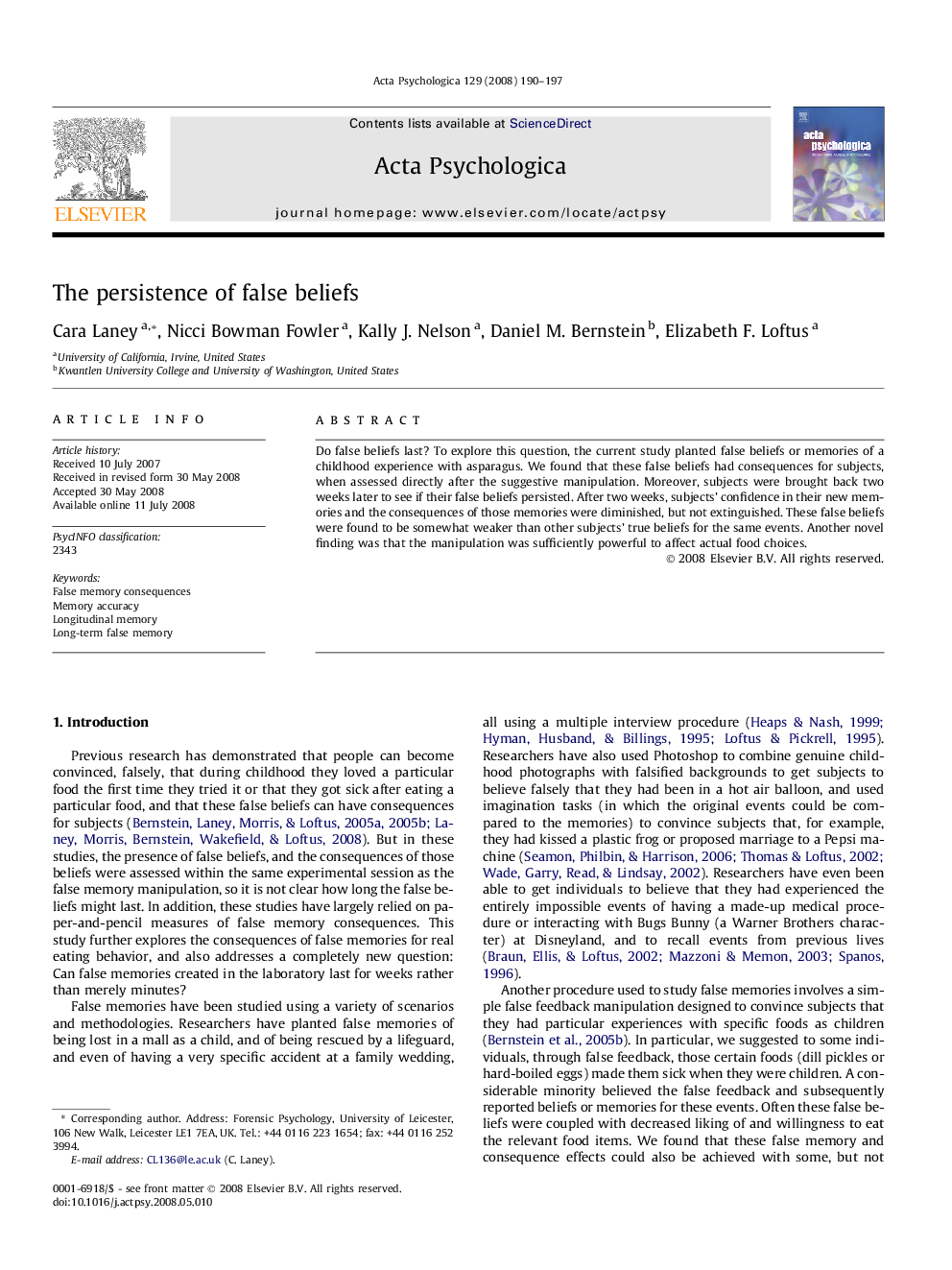| Article ID | Journal | Published Year | Pages | File Type |
|---|---|---|---|---|
| 920410 | Acta Psychologica | 2008 | 8 Pages |
Abstract
Do false beliefs last? To explore this question, this study planted false beliefs or memories of a childhood experience with asparagus. We found that these false beliefs had consequences for subjects, when assessed directly after the suggestive manipulation. Moreover, subjects were brought back two weeks later to see if their false beliefs persisted. After two weeks, subjects’ confidence in their new memories, and the consequences of those memories were diminished, but not extinguished. These false beliefs were found to be somewhat weaker than other subjects’ true beliefs for the same events. Another novel finding was that the manipulation was sufficiently powerful to affect actual food choices.
Keywords
Related Topics
Life Sciences
Neuroscience
Cognitive Neuroscience
Authors
Cara Laney, Nicci Bowman Fowler, Kally J. Nelson, Daniel M. Bernstein, Elizabeth F. Loftus,
